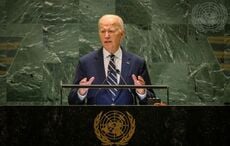Ireland will likely be forced to default on its loans and will take decades to recover says Nobel Prize winning economist Paul Krugman, in an upcoming article in The New York Sunday Times Magazine. Krugman is probably the most influential economist in America.
He also says the country might decide at some point to go back to its own currency and devalue heavily. Toughing it out by massive cuts , the current policy will inevitably fail he thinks,
In a lengthy article about the future of the Euro Krugman compares Ireland to Nevada to make his point. Nevada is the hardest hit of the U.S states in the recession but he says Nevada will fare much better than Ireland.
Nevada’s situation is “much less desperate than Ireland’s,” he claims. “Both are small economies of a few million people highly dependent on selling goods and services to their neighbors. (Nevada’s neighbors are other U.S. states, Ireland’s other European nations, but the economic implications are much the same.) Both were boom economies for most of the past decade. Both had huge housing bubbles, which burst painfully. Both are now suffering roughly 14 percent unemployment. And both are members of larger currency unions: Ireland is part of the euro zone, Nevada part of the dollar zone, otherwise known as the United States of America.
First of all, the fiscal side of the crisis is less serious in Nevada. It’s true that budgets in both Ireland and Nevada have been hit extremely hard by the slump. But much of the spending Nevada residents depend on comes from federal, not state, programs. In particular, retirees who moved to Nevada for the sunshine don’t have to worry that the state’s reduced tax take will endanger their Social Security checks or their Medicare coverage. In Ireland, by contrast, both pensions and health spending are on the cutting block.
Also, Nevada, unlike Ireland, doesn’t have to worry about the cost of bank bailouts, not because the state has avoided large loan losses but because those losses, for the most part, aren’t Nevada’s problem.
Over all, then, even as both Ireland and Nevada have been especially hard-luck cases within their respective currency zones, Nevada’s medium-term prospects look much better.”
Krugman says the Nevada Ireland comparison in a nutshell is what is wrong with the Euro
“...when the single European currency was first proposed, an obvious question was whether it would work as well as the dollar does here in America. And the answer, clearly, was no — for exactly the reasons the Ireland-Nevada comparison illustrates.
“Europe isn’t fiscally integrated: German taxpayers don’t automatically pick up part of the tab for Greek pensions or Irish bank bailouts. And while Europeans have the legal right to move freely in search of jobs, in practice imperfect cultural integration — above all, the lack of a common language — makes workers less geographically mobile than their American counterparts.
During the recent crisis Krugman argues the problems with the Euro became terminal.
Comparing Ireland and Spain he writes “revenue plunged in both Spain and Ireland, in part because tax receipts depended heavily on real estate transactions. Meanwhile, as unemployment soared, so did the cost of unemployment benefits — remember, these are European welfare states, which have much more extensive programs to shield their citizens from misfortune than we do. As a result, both Spain and Ireland went from budget surpluses on the eve of the crisis to huge budget deficits by 2009.
The greed of the banks in Ireland he says was incredible. “ Banks ran wild in the boom years (and were allowed to do so thanks to close personal and financial ties with government officials),” he writes.
“When the bubble burst, the solvency of Irish banks was immediately suspect. In an attempt to avert a massive run on the financial system, Ireland’s government guaranteed all bank debts — saddling the government itself with those debts, bringing its own solvency into question.
Krugman argues that solvency issue is at the heart of the crisis.
“Over the course of the past year or so, first Greece, then Ireland, became caught up in a vicious financial circle: as potential lenders lost confidence, the interest rates that they had to pay on the debt rose, undermining future prospects, leading to a further loss of confidence and even higher interest rates. Stronger European nations averted an immediate implosion only by providing Greece and Ireland with emergency credit lines, letting them bypass private markets for the time being. “
Krugman says the high yield on the Irish bonds means investors don’t expect them to repay in full “ ...the message from the markets was clear: investors don’t expect Greece and Ireland to pay their debts in full. They are, in other words, expecting some kind of debt restructuring..” Krugman calls Iceland an example of what can be done to salvage things. “Unlike Ireland, which tried to salvage its banks by guaranteeing their debts, the Icelandic government forced its banks’ foreign creditors to take losses, thereby limiting its debt burden. And by letting its banks default, the country took a lot of foreign debt off its national books.”
A critical difference says Krugman is that Iceland retained its own currency and was able to devalue -- an idea that may become a reality for Ireland at some point he says “ the earlier Ireland-Nevada comparison shows, the United States works as a currency union in large part precisely because it is also a transfer union, in which states that haven’t gone bust support those that have. And it’s hard to see how the euro can work unless Europe finds a way to accomplish something similar” he notes.
The only way back says Krugman is for a currency union where every country in the euro is responsible for other countries debts as well However he says Germany has given no indication it would accept such a system based on Eurobonds.
He says judging by the harsh interest rates Ireland faces in order to repay its debts it doesn’t look likely such a system will be put in place.
“Call it the curse of the single currency” he concludes.




Comments